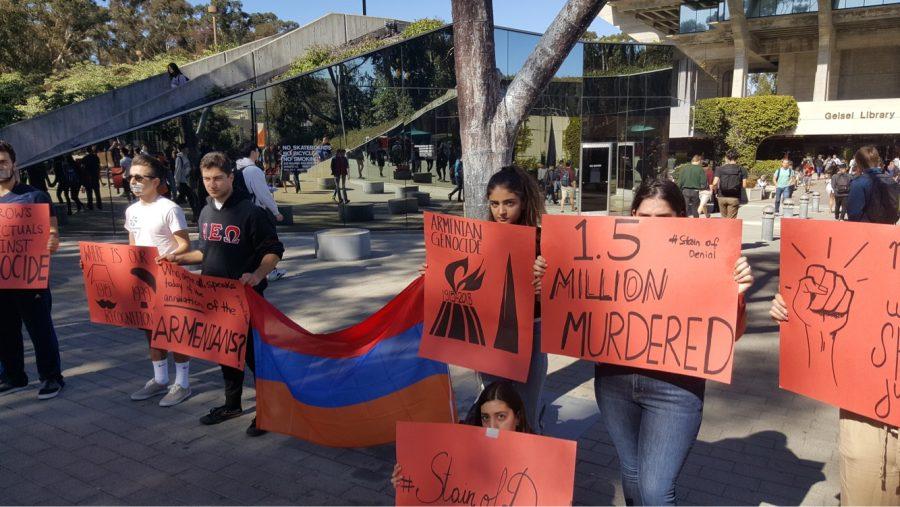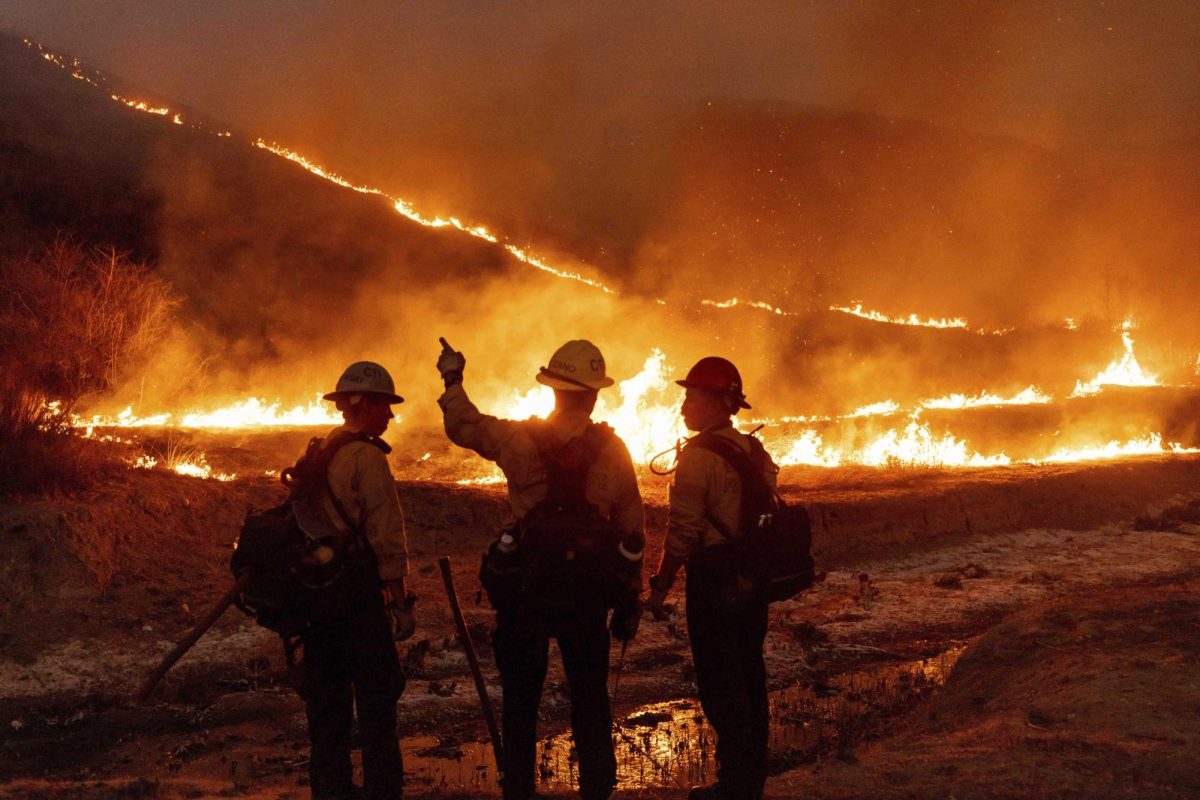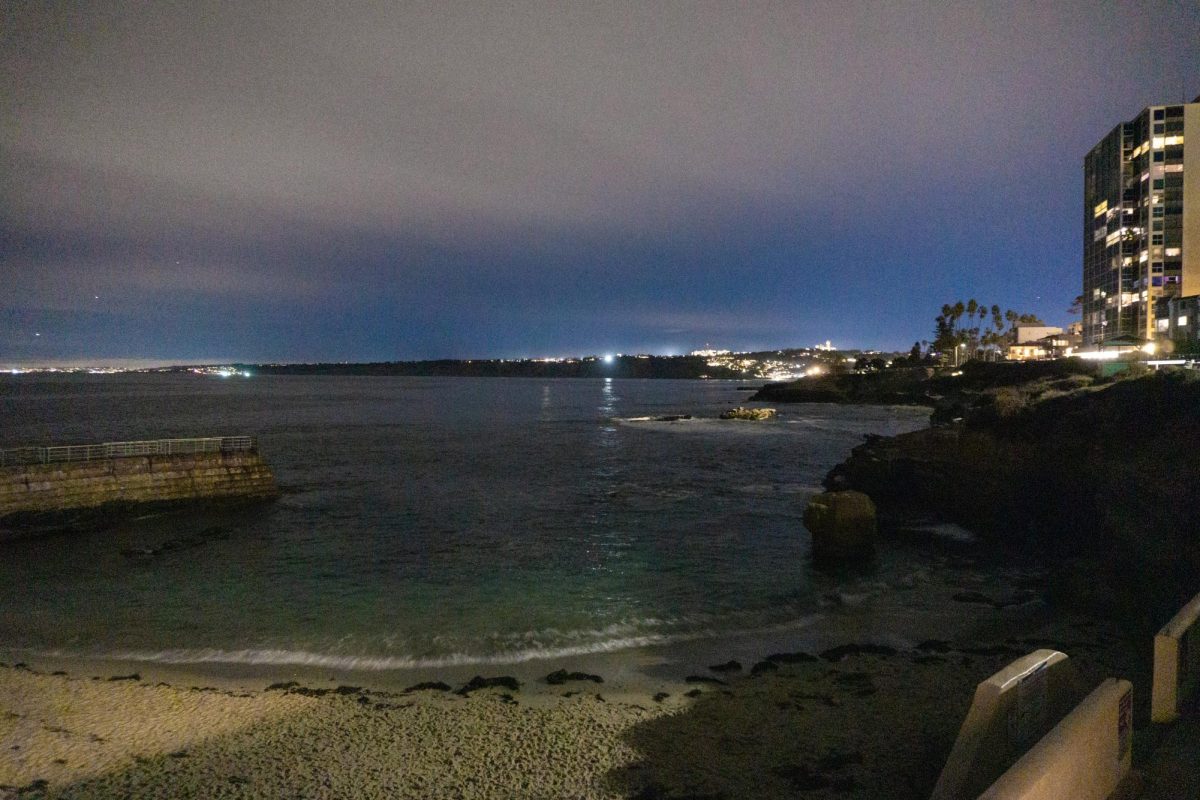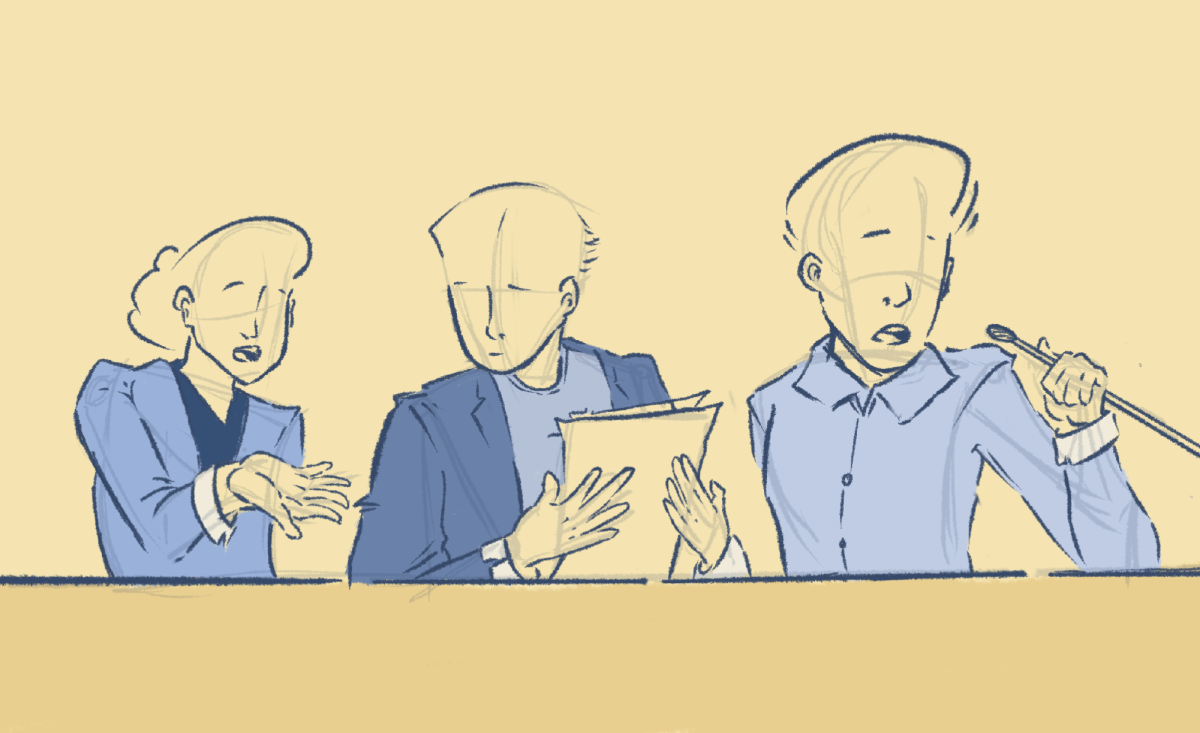Students gathered outside Geisel Library on Thursday to hold a silent demonstration against the United States’ failure to recognize the Armenian genocide — the systematic execution of over 1.5 million Armenians by the Ottoman Empire and subsequent Turkish state from 1915 to 1922. Due to the fact that the Republic of Turkey, an American ally, has since denied that the killings constitute a genocide and instead argue that the Armenians were enemy combatants, the U.S.government has never officially declared the government’s actions a genocide.
The group of almost 10 people, some with duct tape covering their mouths, stood in front of the Silent Tree, bearing red signs with slogans like “Stain of Denial” and “TOMORROW’S INTELLECTUALS AGAINST GENOCIDE” and carrying the Armenian flag. One poster depicted a drawing of Adolf Hitler next to one of the “Three Pashas” who perpetrated the Armenian genocide and asked “WHERE IS OUR RECOGNITION?” — clearly questioning the government’s acknowledgment of the Holocaust compared to its silence on the Armenian genocide.
Meg Zargarian, a member of UC San Diego’s Armenian Students Association, explained the origins of the genocide to the UCSD Guardian.
“Since they were a Christian minority during [World War I], nations started leaving the [Ottoman Empire],” Zargarian said. “[The Ottomans] decided they wanted to keep the land … their goal was to leave one Armenian and leave him in a museum. They didn’t succeed, but over 1.5 million Armenians were massacred.”
While their demonstration was only a small group, Zargarian noted that they were acting in conjunction with Armenian students across the country.
“Every year, from [the] east to west coast, Armenians in different schools on this day at the same time protest for the Armenian genocide,” she stated. “We’re trying to get the hashtag ‘Stain of Denial’ trending on social media. It’s for the Armenian genocide and to get recognition on the day of April 24 [the day the Armenian genocide began].”
Sixth College student Albert Danielyan believes that because the genocide was one of the first modern ethnic cleansings, it is important that the event be remembered accurately.
“Despite the fact that other historical cases of ethnic cleansing such as the Holocaust have been acknowledged by the U.S., the Armenian genocide is still being denied,” Danielyan told the Guardian. “It was one of the first signs of systematic cleansing, and I feel that it should be recognized so we can have our voices heard.”
At past years’ demonstrations, students have also highlighted the University of California’s financial ties to Turkey, particularly its over $70 million in investments, and called for divestment.
“It’s still in the works, but we’re going to present a divestment from the Republic of Turkey,” Earl Warren College graduate Seda Byurat said in 2016. “This resolution passed across many UC campuses — UCLA, UC Berkeley, UC Irvine, UC Riverside, just to name a few. Finally, it’s coming here to UCSD. This is our segue into bringing up divestment. Even Hitler quoted, ‘Who, after all, remembers the Armenians?’ when he was trying to get away with his Holocaust. If we keep these huge historical things under wraps, and we keep supporting governments as students, that’s not the progress we want to see in society and the world.”
A.S. Council unanimously passed the resolution in March 2017, making UCSD the seventh campus to do so, but the UC Board of Regents have yet to take action on the issue.
Interviews conducted by Rebeca Camacho and Tyler Faurot. Photo by Tyler Faurot | UCSD Guardian.







Don • Feb 12, 2018 at 1:40 pm
The American government has regularly denied genocide. The primary example is the soil of North America, the denial of it’s atrocities against the Native Americans, the need for Indian Reservations, the history of La Jolla denying land ownership to Jewish people previously, the transfer of Federal property to a non profit to maintain Christianity & the cross on a US Veterans memorial known as Mt Soledad, the not so subtle way UCSD let’s Christianity flow in official University capacities when it’s a public university in the public county of San Diego or Saint James in English. Religious Slavery is a real issue across the global, but look no further than the community one lives in to understand the atrocities.